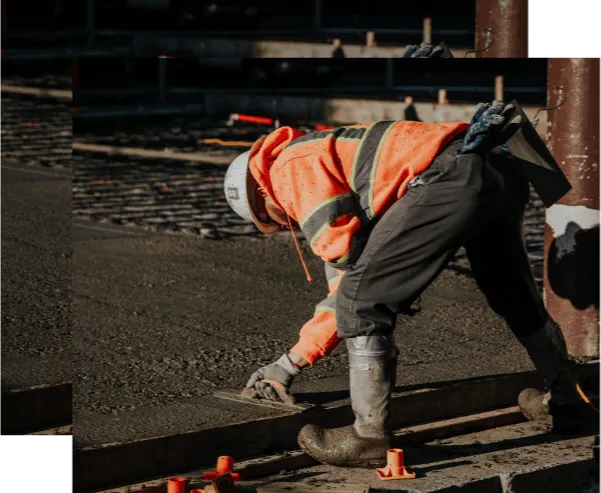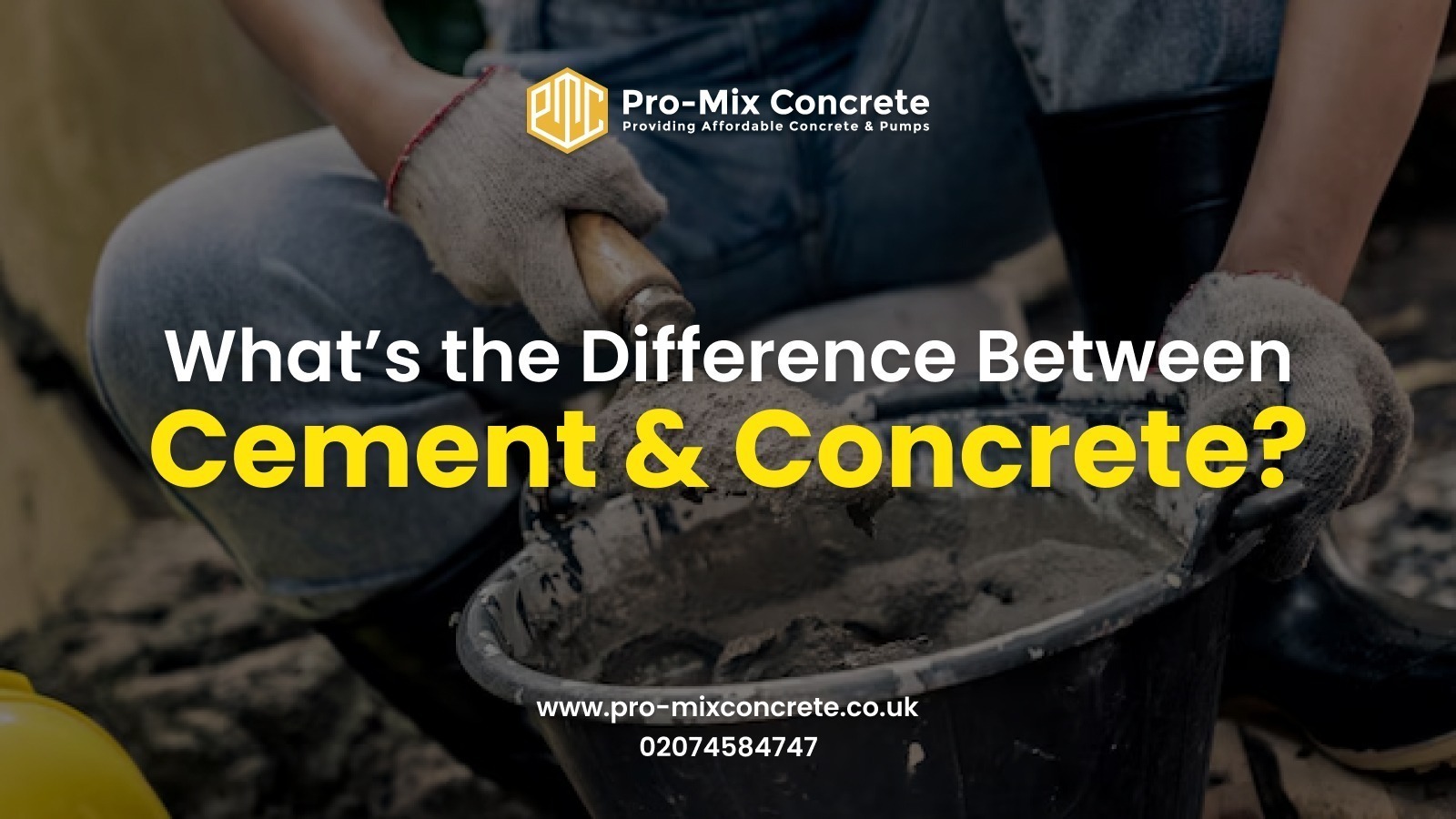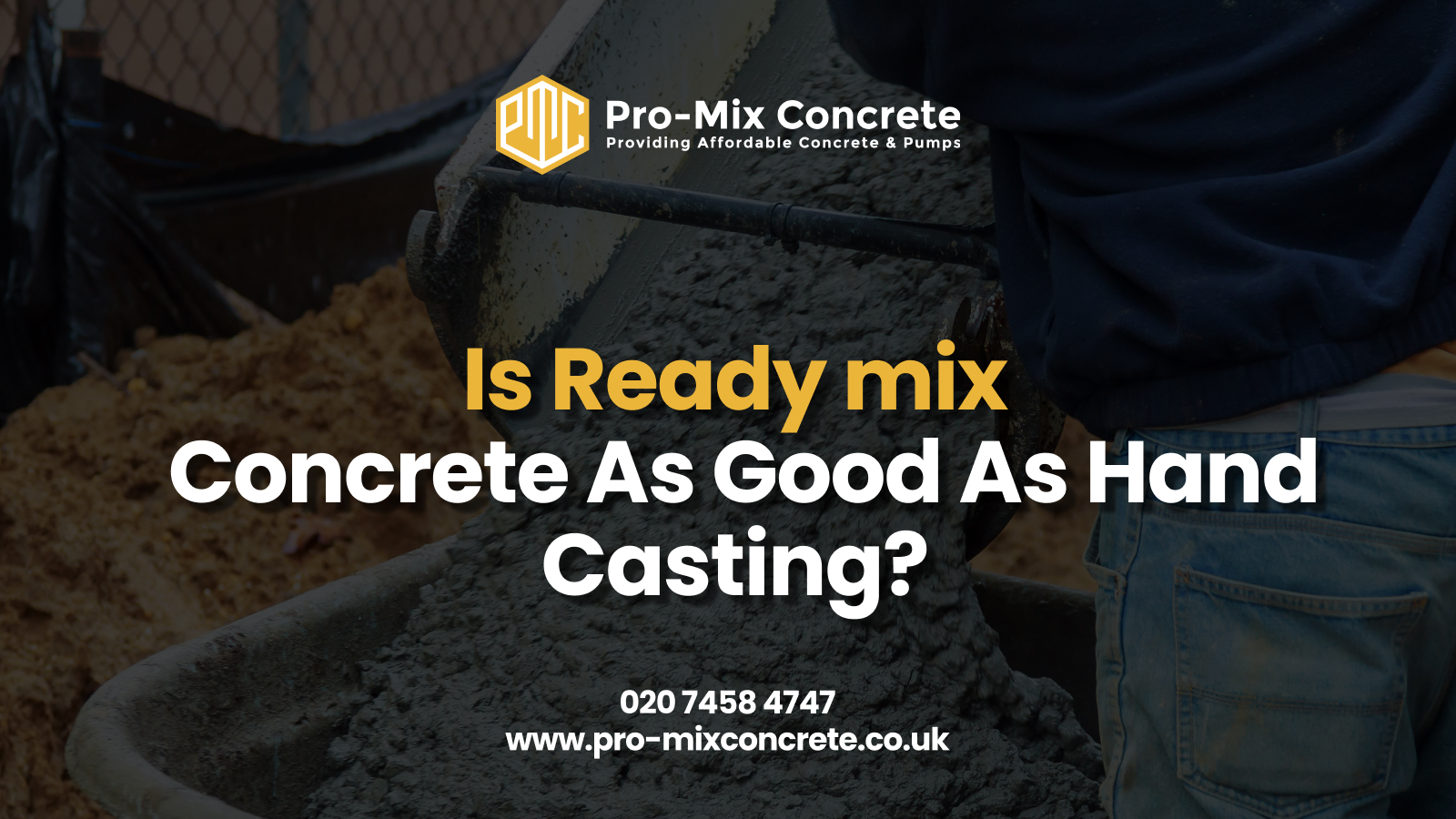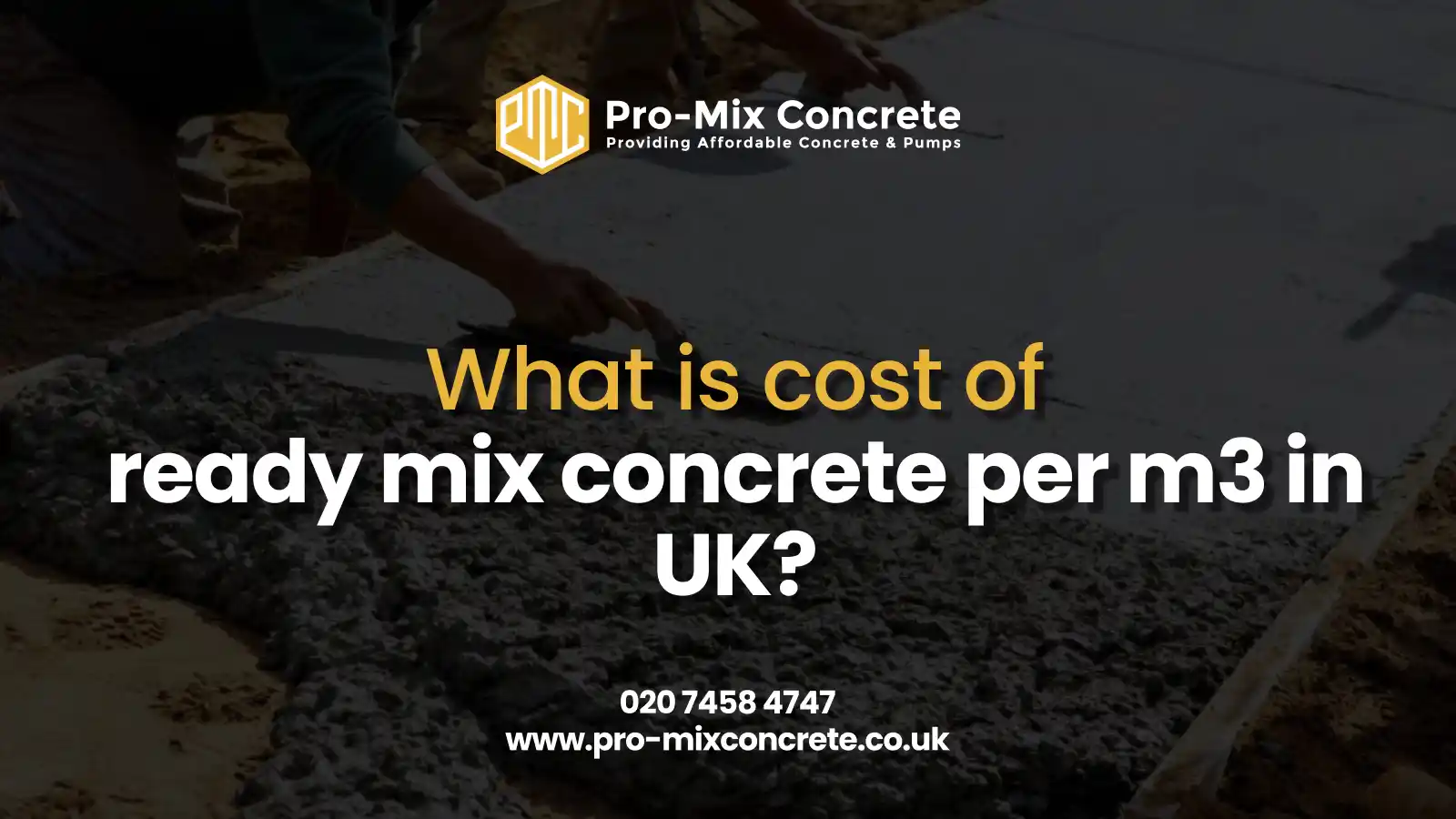If you’ve ever tackled a construction project or talked with contractors, you’ve probably heard the terms cement and concrete thrown around. Often, people use these words as if they mean the same thing, but they don’t. These are distinct materials with different properties, applications, and costs. Truth is, understanding the distinction between cement and concrete can save you headaches and potentially money on your next building project.
Well, you have come to the right place if you are also wondering what is the primary difference between cement and concrete.
The Fundamentals of Concrete vs Cement
The simplest way to understand the concrete vs cement relationship is this: cement is an ingredient, while concrete is the final product. Think of cement as flour in a cake recipe, and concrete as the finished cake.
What Exactly Is Cement?
Cement is a fine powder that works as a binding agent. It’s made by crushing limestone, clay, and other minerals, burning this mixture at high temperatures, and grinding it into powder.
On its own, cement isn’t useful for construction. When mixed with water, it forms a paste that hardens through hydration. This hardening property makes cement valuable, but by itself, it lacks structural strength.
The most common type is Portland cement, which makes up about 95% of cement used in construction.
What Makes Concrete Different?
Concrete is created by mixing cement with water, sand, and crushed stone or gravel. The cement and water form a paste that coats and binds the aggregates. As it cures, it hardens into the strong, durable material we know as concrete.
A typical concrete mix contains:
- 10-15% cement
- 60-75% aggregates
- 15-20% water
- Small amounts of air and sometimes additives
This explains why concrete has greater strength, durability, and versatility than cement alone. The aggregates provide bulk and strength, while the cement paste holds everything together.

The Difference in Strength and Durability
When it comes to construction materials, strength and durability are top priorities. This is where the difference between concrete and cement becomes most apparent.
Cement’s Limitations
Cement alone has significant limitations in strength and durability:
- Low Tensile Strength: Pure cement is brittle and prone to cracking under tension.
- Vulnerability to Elements: Without aggregates, cement deteriorates faster when exposed to weather.
- Crumbling Risk: Cement structures are more likely to crumble over time, especially under load.
The primary purpose of cement is to bind other materials together. It’s the glue in the mixture, not the structural component.
Concrete’s Superior Performance
Concrete dramatically outperforms cement in both strength and durability:
- Compressive Strength: Concrete can withstand substantial pressure and weight, typically measured at 3,000 to 5,000 PSI (pounds per square inch) for standard mixes.
- Weather Resistance: Properly cured concrete resists damage from freeze-thaw cycles, moisture, and temperature fluctuations.
- Longevity: Concrete structures can last for decades or even centuries with minimal maintenance.
The reason for concrete’s superior performance lies in its composite structure. The aggregates in concrete:
- Distribute loads evenly throughout the material
- Prevent cracks from propagating
- Provide resistance against abrasion and erosion
- Create a more dimensionally stable material
Real-World Performance
This strength difference is why you don’t see cement sidewalks or cement foundations, they simply wouldn’t hold up. Concrete’s superior strength and durability make it the material of choice for:
- Building foundations
- Structural columns and beams
- Bridges and dams
- High-traffic areas like roads and parking lots
Where Are Both Of Them Used?
When to Use Cement
Masonry projects use cement in mortar to bond bricks, stones, and blocks together. For exterior finishes, cement forms the foundation of stucco, providing both weather resistance and aesthetic appeal.
Tile installation relies on cement-based adhesives and grout, while small repair jobs often call for specialized cement mixtures to fix minor cracks and holes without requiring full concrete pours.
When to Use Concrete
Foundations for buildings of all sizes depend on concrete’s compressive strength to distribute weight and provide stability. Transportation infrastructure—highways, bridges, and runways—uses concrete because it withstands constant stress for decades with minimal maintenance.
Water-related structures like pools, dams, and treatment facilities leverage concrete’s ability to form complex, watertight shapes while maintaining structural integrity. Decorative applications have also expanded, from polished floors to stamped patios that mimic natural stone.
Choosing between cement and concrete ultimately comes down to matching the material to your specific project requirements and performance needs.
Cost Considerations In Regard to Your Project
Cement Costs
Cement typically sells in a 25kg bag of standard cement: £7.80 (including VAT) at home improvement stores. Specialty varieties can cost 30-50% more.
Key pricing factors include:
- Raw material availability affects cement prices directly. When limestone, clay, and gypsum become more expensive to source, cement prices rise.
- Energy costs impact manufacturing expenses significantly, as cement production requires extremely high temperatures.
- Transportation distances add to the final price, making cement more expensive in remote locations.
Concrete Costs
Concrete is priced per cubic yard, with ready-mix typically ranging from $100-$150 for standard mixes.
Primary cost factors include:
- Mix design specifications, high-strength or speciality concrete can cost 20-100% more than basic mixes.
- Project size affects pricing through economies of scale, with smaller projects often incurring minimum load charges.
- Delivery logistics and finishing requirements contribute significantly to total project costs.
Cost-Effectiveness
For small projects under one cubic yard, buying bagged cement and mixing on-site might be more economical. Medium to large projects usually get better value from ready-mix concrete when considering labour savings and quality. Well-constructed concrete typically provides excellent long-term value despite higher initial costs, often lasting decades with minimal maintenance.
The Bottom Line
Cement is a powder that is not suitable for manufacturing a pavement or a swimming pool on its own. It is merely one component in the concrete mix! Conversely, concrete is a mixture of water, sand, cement, and stone (gravel, rock), with assorted proportions of each ingredient depending on the project’s requirements. Hence, if you are looking for a material to provide a firm foundation for your structure, you must seek high-quality ready mix concrete. For this purpose, you have to perform thorough research to discover reputable businesses. Also, you must identify your specific needs and address your queries regarding the type of mix you desire. It will enable the manufacturers to customise the quantity of cement and other aggregates to cater to your needs.
Are you looking for concrete for your upcoming construction project? Get in touch with our representatives at Pro-Mix Concrete London to attain the best quality mix at an affordable price with optimum customer service and comprehensive guidance!
Frequently Asked Questions
No. Cement alone lacks the structural strength needed for driveways. You need concrete, which contains cement plus aggregates that provide durability and load-bearing capacity.
Concrete costs more because it includes additional materials (aggregates), requires specialized mixing equipment, and often involves delivery charges. However, concrete provides much greater strength and durability, making it cost-effective for most construction projects.
Yes, for small projects. You can buy bagged cement and mix it with sand, gravel, and water according to package instructions. For larger projects, ready-mix concrete is more practical and provides more consistent quality.
The main difference between cement and concrete is that cement is an ingredient, while concrete is the finished building material.
- Dennis Broderick
- Dennis Broderick is the founder and owner of Pro-Mix Concrete Company, a trusted name in ready-mix concrete solutions across the UK. With over 20 years of hands-on experience in the construction and concrete industry, Dennis brings unmatched expertise, practical insights, and a commitment to quality on every project - from residential driveways to large-scale commercial developments.
 BlogDecember 10, 2025Is Ready Mix Concrete As Good As Hand Casting?
BlogDecember 10, 2025Is Ready Mix Concrete As Good As Hand Casting? BlogDecember 8, 2025How Do You Calculate The Concrete Required For A Job?
BlogDecember 8, 2025How Do You Calculate The Concrete Required For A Job? BlogNovember 26, 2025Ready Mix Concrete Costs UK: 7 Key Factors That Affect Your Price Per m³
BlogNovember 26, 2025Ready Mix Concrete Costs UK: 7 Key Factors That Affect Your Price Per m³ BlogNovember 26, 2025How Long Does Concrete Take To Cure?
BlogNovember 26, 2025How Long Does Concrete Take To Cure?





